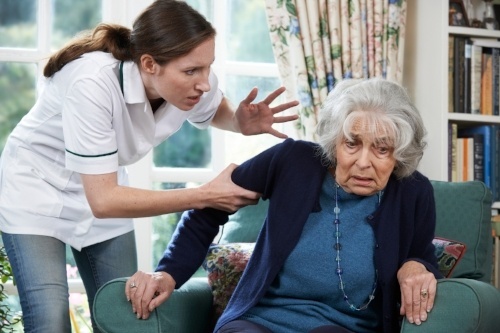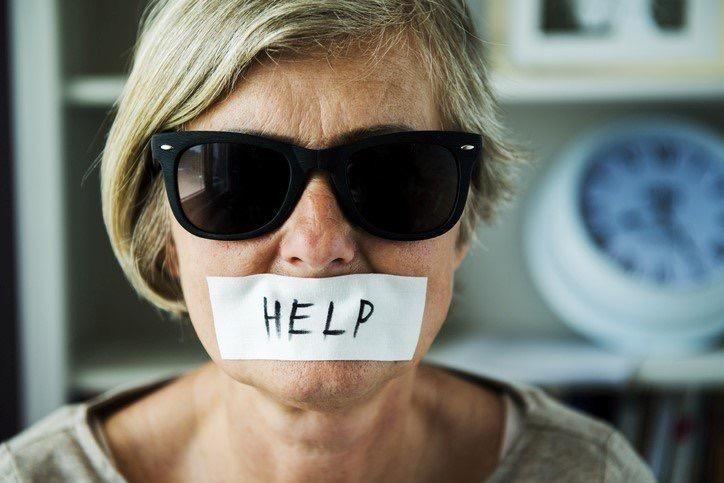What Constitutes Neglect in a Nursing Home?
An issue that doesn’t get enough attention in this country is elder abuse.
According to the Centers For Disease Control, more than 500,000 older adults over the age of 60 are neglected each year.
And those numbers are probably low because a majority of cases likely go unreported.
Nursing home neglect is a tragic but common problem in the United States.
It occurs if a nursing home doesn’t provide proper care to its residents which results in physical or mental health problems.
Fortunately, many nursing homes treat their residents with the respect they deserve and provide excellent care.
But sadly, not all nursing homes do.
Failure to meet the needs of a nursing home resident is neglect, and it is never acceptable.
In the article below, we will examine what constitutes nursing home neglect and how to find the best nursing home abuse lawyer.
I met with Harry Brown personally and he sat with me for 20 minutes at our initial consultation to explain everything. He even called after my surgery to see how I was doing. I met with him several more times after that and was kept informed about my case throughout. I highly recommend Harry Brown as an attorney.
What Are The Types of Nursing Home Neglect?
To put it simply, neglect occurs when a caretaker fails to provide the necessary care to an older adult.
Nursing home neglect can be broken down into 4 categories:
- Medical Neglect: Medical neglect occurs when the nursing home staff fails to attend to or prevent the medical concerns of a resident. This can result in residents receiving inadequate diabetic care, bedsores, infections, mobility issues, and a plethora of other medical problems.
- Neglecting Basic Needs: Another type of neglect is when a nursing home’s staff fails to provide residents with their most basic needs. This can include a lack of water, food, or a clean, safe environment.
- Neglecting Personal Hygiene: Neglecting personal hygiene is when a nursing home fails to help residents with bathing, dental care, laundry, and other sanitary needs.
- Neglecting Social or Emotional Needs: This occurs when the nursing home staff ignores their residents, leaving them alone too long, or fails to provide them with the needed social and emotional care.


What Are The Signs of Nursing Home Neglect?
It can sometimes be tough to notice the signs of nursing home neglect.
It isn’t always as easy as spotting an injury because, depending on the type of neglect, there might not be any physical signs of neglect.
Neglect can take many forms, and unfortunately, many don’t have obvious warning signs.
Also, if elderly patients don’t live close to family or see their family regularly, it can be hard to spot behavioral differences.
Behavioral differences and signs of poor health are best identified when nursing home residents live close to family, friends, or loved ones.
Common signs of nursing home neglect to look out for are:
- Unexplained weight loss and/or malnutrition
- Bed Sores
- Any unexplained injury
- Dehydration
- Withdrawn behavior
- Unusual changes in behavior
- Changes in personal hygiene or appearance
- A lack of necessary medical treatments
- No friendly interaction with the nursing home staff
- A lack of interaction with the other elderly residents
- Poor sanitary conditions
- Environmental hazards like poor lighting, slippery floors, or unsafe furniture
- Complaints from your loved one about the long-term care facility
What Causes Nursing Home Neglect?
The causes of nursing home neglect will vary depending on the situation, but many cases of neglect are due to inadequate staffing.
Caregivers stretched too thin or overworked are more likely to make mistakes and may not be able to provide the quality of care needed to keep residents healthy and happy.
Caregivers may receive improper training or be assigned too much to do throughout the day.
A lack of training and too much to do throughout the day is bound to lead to mistakes.
Some nursing homes may not be able to vet who they hire or hire without running background checks.


Who is Legally Liable for Nursing Home Neglect?
If an elderly person is neglected in a nursing home and doesn’t receive proper medical care or endures physical abuse or emotional abuse, the nursing home can be held liable if any of the following played a part in the neglect:
- negligent hiring
- breach of statutory or regulatory obligations
- medication errors
- understaffing
- inadequate training
The facility is also “vicariously liable” for the negligent acts of its employees, including most actions taken in the course and scope of the caregiver’s job responsibilities.
Nursing homes will sometimes hire contractors or outsource various tasks to third parties, and those third parties can be liable for abuse or neglect of an elderly person.
What Should I Do If I Suspect Elder Abuse Or Neglect?
If you are an elderly person dealing with neglect, or you suspect someone you know or love is a victim of elderly nursing home abuse, you should immediately call the police or Adult Protective Services.
There is no burden of proof just to make a report.
Visit the National Center on Elder Abuse “Reporting Abuse” resource page to get started.
If you have any reason to suspect that there are problems in a nursing home, or you are worried about an unsafe condition, your state’s long-term care, call the U.S. Administration on Aging at 800.677.1116 or visit www.eldercare.gov.
Ready to Talk to a Lawyer Who Has Your Back?
Preventing Neglect
There are several ways to protect your loved ones from nursing home neglect.
First, carefully review all the nursing home facilities before making a decision.
If you’re considering a nursing home for a loved one you need to look for signs of improper nursing home care.
Look for things like understaffing and unsanitary living conditions.
And don’t always count on price, appearance, and online ratings guarantee quality care.
Once you’ve decided on a nursing home, you should visit often.
Frequently visiting your loved ones will make it easier to see signs of poor care.
Things like poor hygiene, malnutrition, and behavioral changes will be easy to spot if you make routine visits.
If you can’t visit often, keep in touch through phone calls or other methods.
Simply knowing the warning signs of nursing home abuse and neglect can help spot problems early on.
Another common mistake many people make when dealing with their elders is dismissing what they say.
Never dismiss an older adult who complains of neglect.
Refusing to listen to a loved one may keep them from telling you about potential problems in the future and lead to more neglect.
Our Recent Personal Injury Articles
Truck Accidents and “Negligent Maintenance”: Holding Companies Accountable for Unsafe Vehicles
A bus caught fire on Friday night at Ashford Dunwoody Road and I-285 West, causing delays during rush hour. The ramp was closed, and firefighters were able to put out...
Car Accident Lawsuits: What to Expect in Court
A bus caught fire on Friday night at Ashford Dunwoody Road and I-285 West, causing delays during rush hour. The ramp was closed, and firefighters were able to put out...
E-Bikes and Accidents: New Risks and Legal Considerations
A bus caught fire on Friday night at Ashford Dunwoody Road and I-285 West, causing delays during rush hour. The ramp was closed, and firefighters were able to put out...
Using Telematics Data to Prove Driver Behavior
A bus caught fire on Friday night at Ashford Dunwoody Road and I-285 West, causing delays during rush hour. The ramp was closed, and firefighters were able to put out...
Why Teenagers are the Most Dangerous Drivers on the Road
A bus caught fire on Friday night at Ashford Dunwoody Road and I-285 West, causing delays during rush hour. The ramp was closed, and firefighters were able to put out...
Slip and Fall Accidents in Retail Stores: Who’s Liable?
A bus caught fire on Friday night at Ashford Dunwoody Road and I-285 West, causing delays during rush hour. The ramp was closed, and firefighters were able to put out...
Bicycle Accidents: A Growing Concern for Urban Cyclists
A bus caught fire on Friday night at Ashford Dunwoody Road and I-285 West, causing delays during rush hour. The ramp was closed, and firefighters were able to put out...
Understanding Nursing Home Abuse: Signs, Symptoms, and Solutions
A bus caught fire on Friday night at Ashford Dunwoody Road and I-285 West, causing delays during rush hour. The ramp was closed, and firefighters were able to put out...
Slip and Fall Accidents in Hotels: Establishing Liability
A bus caught fire on Friday night at Ashford Dunwoody Road and I-285 West, causing delays during rush hour. The ramp was closed, and firefighters were able to put out...
Types of Nursing Home Abuse: Physical, Emotional, and Financial
A bus caught fire on Friday night at Ashford Dunwoody Road and I-285 West, causing delays during rush hour. The ramp was closed, and firefighters were able to put out...
Get the Answers and Compensation You Deserve
You’ll notice the difference when you contact The Brown Firm! Our local dedicated attorneys want to help you recover and rebuild. We serve all of Georgia and South Carolina from four conveniently located offices.
Schedule your free consultation by calling (912) 324-2498 or completing our simple online form.

